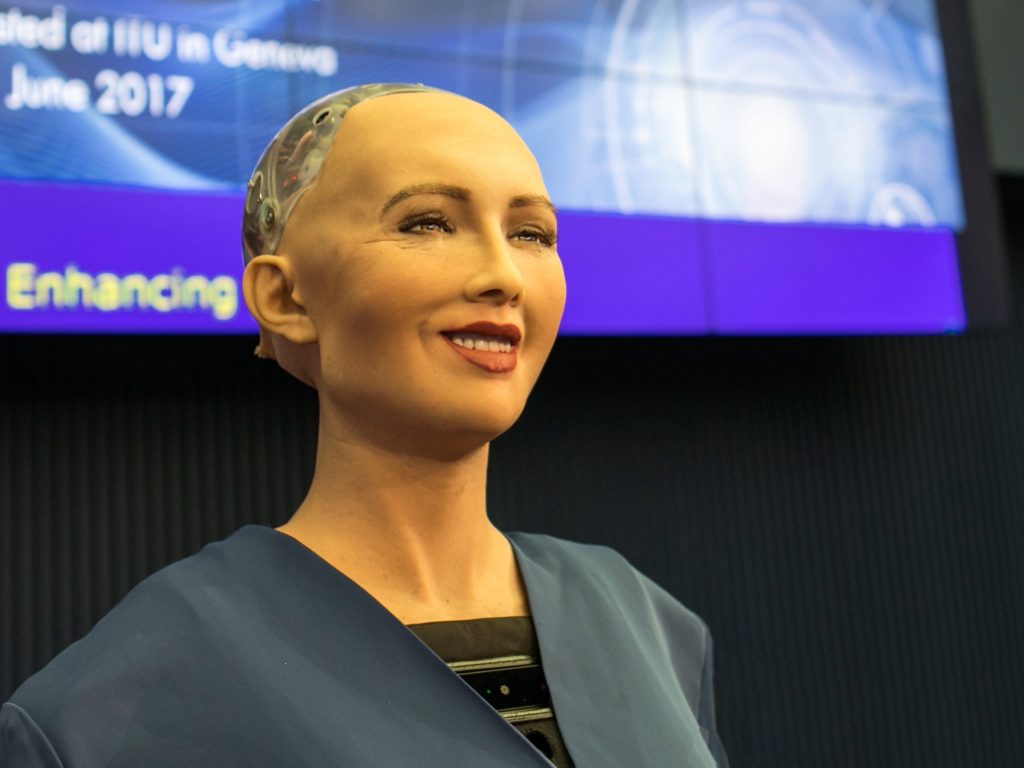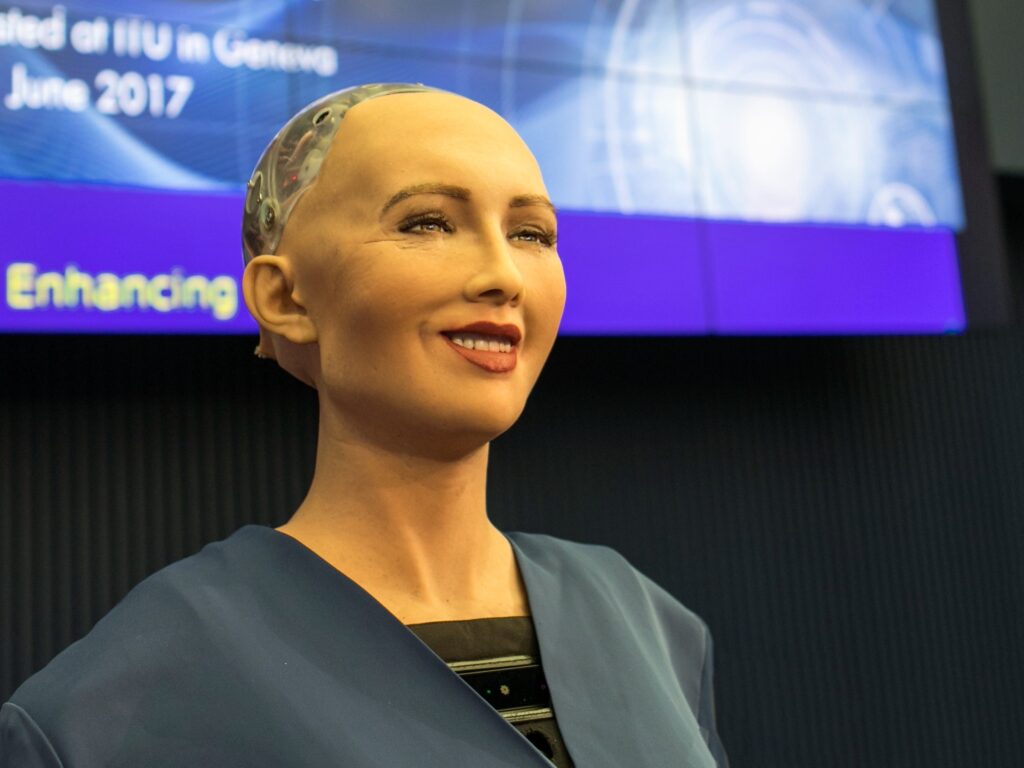
(International Telecommunications Union / Wikimedia Commons)
When Saudi Arabia decided to make Hanson Robotics’ latest artificial intelligence product, “Sophia,” a citizen, addressing women’s rights was not a part of the agenda. The primary goal was to promote the Future Investment Initiative, a tech summit held in Riyadh and reemphasize the country’s commitment to becoming a leader in the tech industry. This focus on technology stems from Saudi Arabia’s Vision 2030 agenda, which outlines the government’s hopes to modernize the country and move away from a dependence on oil. The plan is built upon three central themes: “a vibrant society, a thriving economy and an ambitious nation.” Naturalizing Sophia, a humanoid robot, served as a publicity stunt for the plan, but it also resulted in a number of unintentional consequences as many wondered what the female robot’s citizenship would entail given Saudi Arabia’s gender inequality. It appeared to some that Sophia was being granted more freedom than Saudi women, which launched an international discussion regarding the country’s women’s rights. While most critics ridiculed the idea of allowing the robot citizenship, what they failed to recognize is how Sophia’s controversial presence has benefited the Saudi feminist movement. Making her a Saudi national has attracted international attention and created invaluable dialogue that will advance the Saudi women’s struggle for gender equality.
Women’s rights have been steadily improving in Saudi Arabia in recent years, largely thanks to dialogue, international pressure, and relentless activism. The use of social media greatly contributed to the campaign to allow women to drive, such as when activist Manal al-Sharif filmed a video of herself driving and posted it to YouTube. Some women used Twitter to detail their experiences of being apprehended or arrested while driving and consequently received hundreds of thousands of followers. This ongoing debate and steadfast commitment to change were successful, and in September 2016, the Saudi government announced that it would lift the driving ban, taking effect in June 2018.
There have been other influential hashtags like #StopEnslavingSaudiWomen and #SaveDinaAli that have brought attention to the harsh practice of guardianship: the expectation that every woman must have a male guardian who makes important decisions for her. It wasn’t until midway through 2017 that women were allowed to gain access to certain public services without a guardian’s consent like education and health care, and many restrictions still remain. Saudi women still need a man’s permission to travel, open a bank account and get married or divorced. Many public areas are segregated into “men only” and “family” zones, and women are limited in what they wear and what jobs they have access to.
Saudi women are voicing their frustrations with the Kingdom’s decision to recognize Sophia for a variety of reasons. One of the more vocal groups consists of women who are married to foreign men and therefore cannot pass on Saudi citizenship to their children. Instead, they receive residency cards despite having been born and raised within the country. As one mother explained it, “it hit a sore spot that a robot has citizenship and my daughter doesn’t.” Another concern is Sophia’s lack of hijab and abaya (long conservative dress) which violates Saudi Arabia’s strict dress code.
Many have disputed Sophia’s citizenship via social media. #Sophia_calls_for_dropping_guardianship appeared over 10,000 times on Twitter revealing that users wanted Sophia to speak for an end to the practice of guardianship. This issue has gained some international attention as the American press started pointing out the irony of a feminine robot being granted more freedom than a human Saudi woman. Overall, the presentation of Sophia has provoked feelings of resentment and confusion and has revealed a certain hypocrisy in the Saudi government’s agenda, but nevertheless, the resulting dialogue is a major step forward in the ongoing feminist movement.
Sophia has inspired a similar media movement to that which ended the driving ban and has brought other controversial issues like the conservative dress code and practice of guardianship into question. Like before, Saudi women are using Twitter as a platform for their frustrations, and thanks to Sophia’s international follower base, the dialogue has evolved into a global discussion about the future of women’s rights in Saudi Arabia. In the month since Sophia became a Saudi national, it has become evident that her naturalization is an important instigator for advancing the debate on women’s rights in the country. The government is now challenged with deciding between acknowledging the ridiculousness of making a robot a citizen or explaining why this female figure can be Saudi without wearing a hijab or abiding by the limits of guardianship.







